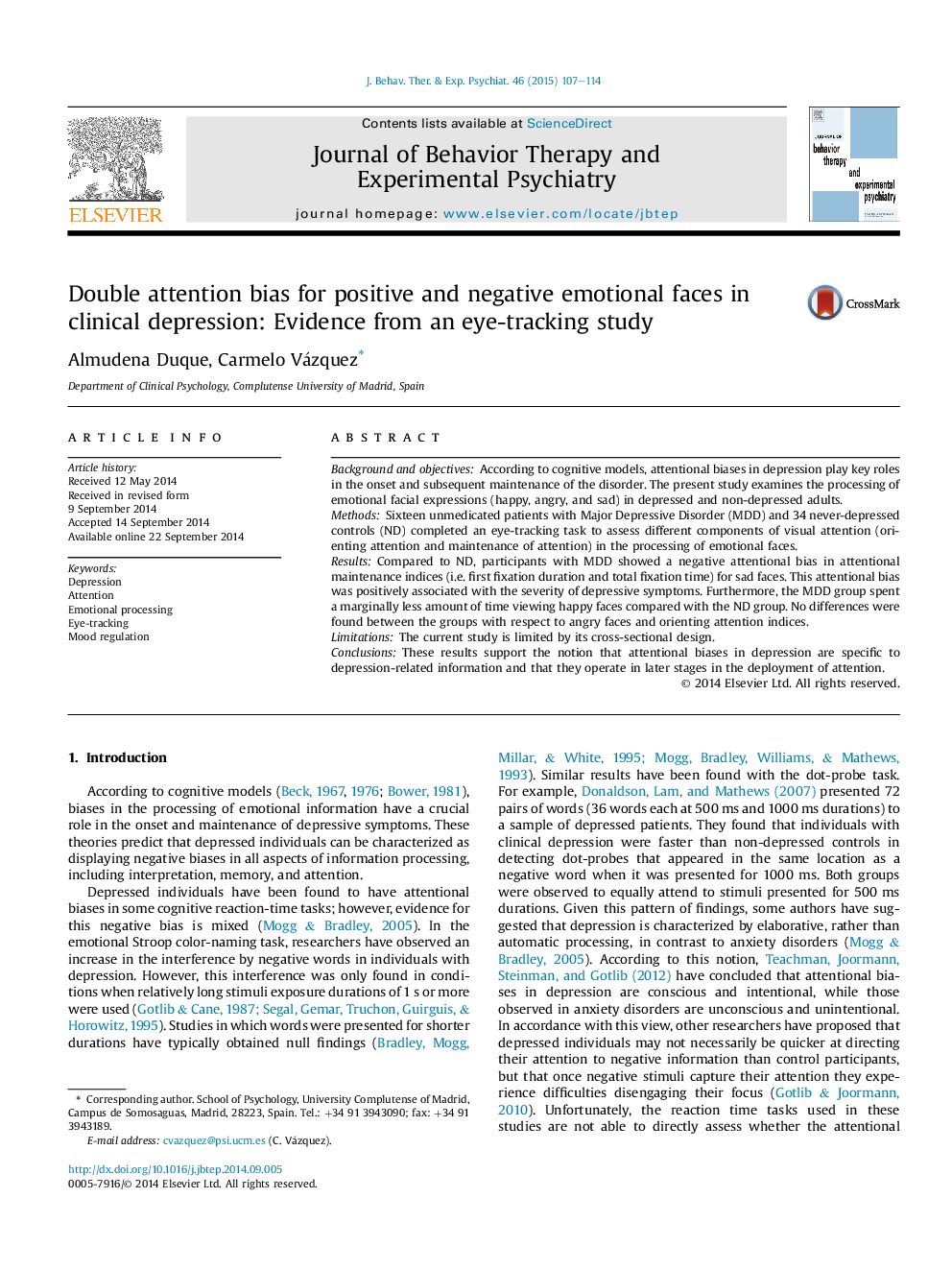| کد مقاله | کد نشریه | سال انتشار | مقاله انگلیسی | نسخه تمام متن |
|---|---|---|---|---|
| 910350 | 1473069 | 2015 | 8 صفحه PDF | دانلود رایگان |
• We compare attentional biases of clinically unmedicated depressed (D) and never-depressed (ND) participants.
• We use a free viewing paradigm using competing emotional faces (happy, sad, angry) and neutral faces.
• Different parameters of orienting attention and maintenance of attention are used.
• The results suggest a double bias in depression (increased attention for sad faces and reduced attention for happy faces).
Background and objectivesAccording to cognitive models, attentional biases in depression play key roles in the onset and subsequent maintenance of the disorder. The present study examines the processing of emotional facial expressions (happy, angry, and sad) in depressed and non-depressed adults.MethodsSixteen unmedicated patients with Major Depressive Disorder (MDD) and 34 never-depressed controls (ND) completed an eye-tracking task to assess different components of visual attention (orienting attention and maintenance of attention) in the processing of emotional faces.ResultsCompared to ND, participants with MDD showed a negative attentional bias in attentional maintenance indices (i.e. first fixation duration and total fixation time) for sad faces. This attentional bias was positively associated with the severity of depressive symptoms. Furthermore, the MDD group spent a marginally less amount of time viewing happy faces compared with the ND group. No differences were found between the groups with respect to angry faces and orienting attention indices.LimitationsThe current study is limited by its cross-sectional design.ConclusionsThese results support the notion that attentional biases in depression are specific to depression-related information and that they operate in later stages in the deployment of attention.
Journal: Journal of Behavior Therapy and Experimental Psychiatry - Volume 46, March 2015, Pages 107–114
